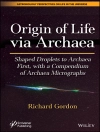This book explains how microorganisms play a pivotal role in the formation of biominerals, including carbonates, silicate minerals and oxides. As readers will learn, these minerals may be produced either intracellularly or extracellularly in order to sustain microbial life. Experienced scientists from the field show that some of these biominerals can be produced in an active form, which involves direct enzymatic intervention to form precipitates. In addition, passive mineral formation can be mediated by the presence of dead cells.
Readers from Microbiology and Biochemistry will appreciate the thorough coverage on various types of microbial mineral formation and their roles in microbial domains. Furthermore, they will benefit from the authors’ first-hand knowledge regarding common techniques for studying biomineral-producing microorganisms, factors affecting biomineralization, and the use of this process in biotechnological applications.
Tabela de Conteúdo
Microbial Domains and Their Role in the Formation of Minerals.- Intracellular and Extracellular Bacterial Biomineralization.- Geophysical Monitoring and Characterization of Biomineralization Processes.- The Molecular Genetics of Microbial Biomineralization.- Silicate Minerals Induced by Microorganisms.- Non-Silicate Minerals (Carbonates, Oxides, Phosphates, Sulfur-Containing, Oxalates and Other Organic Crystals) Induced by Microorganisms.- Magnetosome Biomineralization by Magnetotactic Bacteria.- Factors Affecting Biomineralization.- Experimental Modeling of Carbonate Mineral Precipitation in the Presence of Cyanobacteria.- Key Applications of Biomineralization.
Sobre o autor
Aydin Berenjian
School of Engineering
University of Waikato
Hamilton
New Zealand
Mostafa Seifan
School of Engineering
University of Waikato
Hamilton
New Zealand











